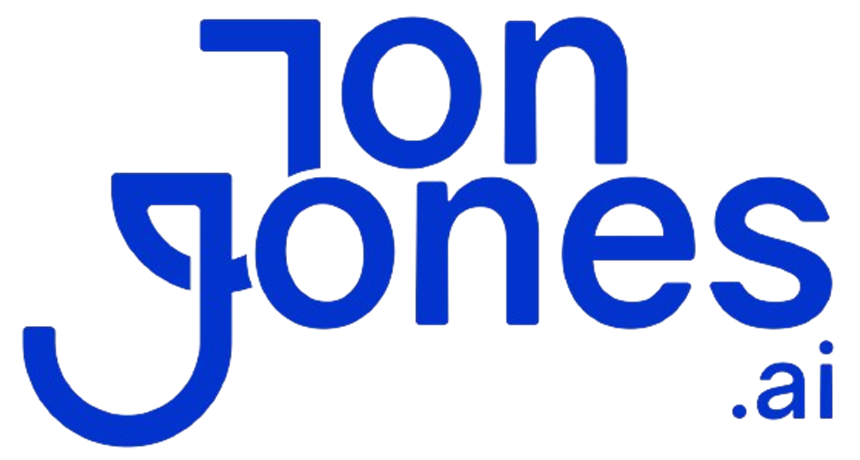Ever feel like your AI (artificial intelligence) plans are wild guesses instead of a clear path? You’re not alone, and around 84% of businesses say their AI projects miss their value targets and never scale.
In this post, we’ll share seven breakthroughs in AI strategy consulting that turn your roadmap from theory into real milestones you can track. We’ll walk you through each step:
- Risk checkpoints
- ROI (return on investment) estimates
- Rallying stakeholder support
Get ready to turn those big ambitions into measurable wins.
Crafting an AI Strategy Consulting Roadmap

A clear AI roadmap turns big goals into steps you can track. It helps you deliver real results quickly and with confidence.
We start by reviewing your current setup (AS-IS analysis) then map out where you want to go (TO-BE planning). Next, we build an ROI model (ROI: return on investment) and plan for risks and compliance so every stage stays on track with your AI goals.
We break down work into chunks, like setting up data pipelines, training models (the process where an algorithm learns patterns), and rolling out to your team. These checkpoints stop scope creep, sharpen our ROI estimates, and keep your leadership in the loop.
Then we align your AI projects with key business metrics and get buy-in from finance, operations, and marketing. That teamwork keeps momentum going and unlocks the budget you need.
A quick AI readiness check flags any gaps in data quality, your tech stack, and team skills before you dive into big builds. It stops surprises down the road, like picking the wrong vendors, missing key performance indicators (KPIs: metrics that track success), or scrambling on change management.
- Align your AI vision with core business goals
- Run an AI readiness check and maturity assessment
- Pick the right AI use cases and build proof-of-concept plans
- Evaluate AI tools and choose the best vendors
- Plan your rollout, manage risks, and enable change with our AI implementation consulting
Then we keep an eye on performance with regular KPI reviews so your roadmap stays flexible and responds to real-world results. Those check-ins let you tweak timelines, reallocate budget, or swap vendors before things derail. This cycle of review and tweak keeps your AI roadmap alive and driving continuous improvement.
Core Components of AI Strategy Consulting Services

We walk you through real-world trade-offs so you can pick the best AI tools for your team. You might go with cloud-based machine learning (ML), you pay as you go and the system auto-scales.
Or you could set up an on-premises data lake (a local storage hub). It costs more up front but gives you tighter control over your data. That way, you match your infrastructure to both your budget and your security needs.
Measuring ROI and Success Metrics in AI Strategy Consulting

In AI (artificial intelligence) strategy consulting, we measure ROI (return on investment) by comparing your upfront costs, software licenses, hardware, and integration, to the savings and extra revenue you’ll see. We look at how cutting manual work and speeding up processes frees your team, plus boosts from new upsells and happier customers. This method maps out your payback period and total value, so you know exactly when you break even.
Next, we track key performance indicators (KPIs) to see if your AI pays off:
- Model accuracy (how often predictions match real outcomes)
- Automation rate (percentage of tasks shifted from manual to machine)
- Cycle-time reduction (how much faster workflows run)
- Cost optimization (lower support expenses or fewer errors)
- Customer satisfaction score (a simple measure of user happiness)
Then we set up monthly or quarterly reviews to compare actual results against targets. We update your ROI model with real savings and revenue and revisit forecasts as your AI systems mature. If costs creep up or performance dips, we tweak settings, retrain algorithms, or shift budget to keep your roadmap adaptive and value-driven.
Nice.
Selecting an AI Strategy Consulting Partner

When you pick an AI strategy consultant, you’re choosing a teammate for your journey. We make sure they know your industry, healthcare, finance, or manufacturing, so your project takes off, not stalls. Check out ai consulting services to see if they’ve solved problems like yours. That way, you get a roadmap that drives real ROI and a smooth rollout.
Industry and Domain Expertise
We look for consultants who speak your language. If you run a clinic or a bank, you want someone who’s already helped similar teams. That deep know-how cuts onboarding time and helps you dodge costly mistakes.
Technical Proficiency & Certifications
You’ll want proof they can build with ML (machine learning, algorithms that learn from data) and NLP (natural language processing, letting computers understand human speech). They should also know big data systems that handle massive info flows. Bonus points for cloud AI creds from AWS, Azure, or Google Cloud, those certificates show they’ve run real models at scale.
Demonstrated Case Studies & Business Case Development
Numbers tell the story. Ask for project write-ups and six- to twelve-month results. A solid track record connects AI insights to money saved or hours gained. And that keeps stakeholders nodding along instead of raising eyebrows.
Ethical AI Practices & Governance Framework
Trustworthy partners bake in ethics from day one. They run bias checks (making sure your AI treats everyone fairly) and add privacy safeguards so data stays protected. You’ll get clear policies, audit logs, and compliance reviews so your tools always meet regulations.
Cultural Fit & Change Management Support
Tech is only half the battle, people are the other half. See how they mesh with your team’s vibe. The right partner trains your staff, guides workflow shifts, and champions change management so adoption feels natural, not forced.
AI Strategy Consulting Governance and Ethics

Okay, so when we talk about AI governance (the rules and roles guiding how we build and run AI models (computer programs that learn from data)), we’re really covering three things: policies (the rules we agree on), roles (who does what), and decision rights (who gets the final say). We also tackle data governance (how we secure and clean the data pipeline (where data flows and gets prepped)), so you know exactly who owns each step.
Clear policies keep us on the same page, goals, guardrails, and who takes the hit if something goes sideways. They also map out the update process so new tweaks don’t slip through the cracks. Nice.
Next, we run compliance audits (regular checks comparing our AI model to rules and industry standards). These audits catch data privacy gaps, hidden biases, and security holes before they become a problem. The audit report turns into our roadmap for fixes that match AI ethics (doing the right thing with AI) and compliance standards.
Then comes continuous oversight, think risk logs (a running list of potential issues) and review cycles (scheduled check-ins). We map risks, assign owners, and keep people accountable for updates and training. And we tie it all to AI regulatory guidance (official rules that can change), so you always know how to act when standards shift.
Stakeholder accountability wraps it up by covering both your internal teams and any external partners handling data or models. That way, everyone’s rowing in the same direction.
7 AI strategy consulting Breakthroughs That Inspire

Ever felt stuck with fragmented data and slow reports? We kicked things off with an AS-IS analysis (a review of your current workflows and data gaps).
That clear picture led to a TO-BE vision (your future process design) and the first step on your AI transformation roadmap (a step-by-step guide). Then we set milestones tied to real metrics so every win had a clear ROI. Leadership jumped on board fast.
Next, we built an AI proof-of-concept (PoC, a simple test project) for automated invoice classification (an algorithm that sorts invoices). Within weeks, that model plugged into your CRM (customer relationship management software) and data warehouse. Manual sorting tasks dropped, and your team could focus on higher-value work.
Our consultants and your developers worked side by side to keep the integration smooth. We watched model accuracy in real time and retrained algorithms when they dipped.
The pilot cut invoice cycle time by 25% and trimmed billing costs by 15%. Feature development accelerated by 30% thanks to reusable model templates and cleaner data flows. These wins lay the groundwork for scaling up and enforcing data governance best practices.
Lessons on change management now guide your global rollouts. Stakeholders love faster decisions and clear KPI tracking.
Scaling AI Strategy Consulting from Pilot to Enterprise

Ever wondered if your team’s ready to turn that AI pilot into a full-scale program? We start by checking your people and your tech stack. Let’s see if your crew has the skills they need and your infrastructure can handle more data, you know.
Next, we set up an AI competency center (think of it as your in-house AI playbook). It brings together stakeholders from IT, ops, and strategy to manage model updates, decide on data pipelines (how data moves and transforms), and handle risk. Nice.
Our cross-functional team keeps every project tied to your business goals and makes decision rights crystal clear. Then we design an AI operating model that maps your roadmap right into everyday workflows. That setup paves a clear path for adoption so your AI investment pays off.
Keeping skills sharp is key. We schedule regular reviews to compare results against targets. When outcomes fall short, we tweak pipelines, retrain models, or shift resources, fast.
Embedding feedback loops lets you adjust on the fly and spread wins across teams. Monitoring everything in a central dashboard means your AI center spots issues early and adapts before they grow. This steady, iterative approach is how we scale AI successfully across your enterprise.
Future Trends in AI Strategy Consulting

Generative models (AI systems that make text or images) and real-time analytics are reshaping strategy work. With a strong generative AI plan, you can automate routine tasks like report summaries or building quick prototypes in minutes.
Mix in hybrid AI-cloud setups and microservices (tiny, reusable code bits) and you’ll scale faster while picking the right tech for your stack with ease. This blend of deep analytics and a clear machine learning (ML) strategy speeds up proof-of-concept tests and lets you make AI-powered decisions the moment insights arrive.
Teams that keep learning new skills will leave rivals behind. Nice.
AI innovation consulting is shifting from tools to creative solutions. Think chatbots that remember past chats and dashboards that update on the fly.
As these tech moves forward, your training must evolve with cloud services and microservices too. Weaving microservices into how you manage change makes upgrades smooth and keeps your team sharp.
That culture of ongoing learning builds trust and gets you set for whatever comes next in automated forecasting.
Final Words
In the action we mapped out a clear strategic roadmap, core consulting components and key success metrics.
We walked through choosing the right partner, setting governance and ethics, and studying a live case.
Next, we explored scaling pilots into full deployment and previewed upcoming AI shifts.
Now you’ve got a full toolkit – from ROI tracking to compliance planning.
By applying this AI strategy consulting framework, you’ll stay agile, streamline operations and drive growth. Here’s to turning insights into impact.
FAQ
What is an AI strategy consultant?
An AI strategy consultant guides companies in planning, implementing, and measuring AI initiatives, ensuring alignment between technology choices, business objectives, and stakeholder needs for measurable impact.
How much do AI strategy consultants make?
AI strategy consultants earn between $80,000 and $180,000 annually on average, depending on experience, location, and firm reputation, with senior roles often exceeding this range through bonuses and project incentives.
What is the 10-20-70 rule in AI?
The 10-20-70 rule in AI suggests allocating 10% effort to strategy, 20% to pilot projects or proofs of concept, and 70% to enterprise-scale deployment and change management.
How do I become an AI strategy consultant?
To become an AI strategy consultant, build expertise in data science, business strategy, and change management, earn relevant certifications (AWS, Azure, Google AI), and gain hands-on experience through internships or consulting projects.
What career paths exist in AI strategy consulting?
AI strategy consulting career paths include junior analyst roles, engagement managers overseeing AI initiatives, technical leads integrating machine learning models, and partner or director positions shaping enterprise AI programs.
Which top firms offer AI consulting services?
Top firms offering AI consulting services are Boston Consulting Group (BCG), McKinsey & Company, Accenture, IBM Consulting, Bain & Company, and Deloitte, each providing specialized expertise across industries.
How can small businesses use AI consulting?
Small businesses using AI consulting can streamline operations, automate repetitive tasks, predict customer trends with data models, and build scalable processes without needing large in-house data science teams.
What types of clients seek AI strategy consulting?
Clients seeking AI strategy consulting range from startups testing proof-of-concept pilots to enterprise firms pursuing digital transformation, plus mid-market businesses aiming to gain competitive advantage through data-driven insights.
What training or courses are available for AI consulting?
AI consulting training options include online programs from Coursera and Udacity, vendor certifications (AWS, Azure, Google AI), specialized workshops on AI ethics, and university executive courses in AI strategy.
Where can I find the BCG AI report PDF?
The BCG AI report PDF can be downloaded directly from Boston Consulting Group’s website under their insights or reports section, often free after providing basic contact information.






